AITA for not calling my husband “my honored husband” in front of his parents?
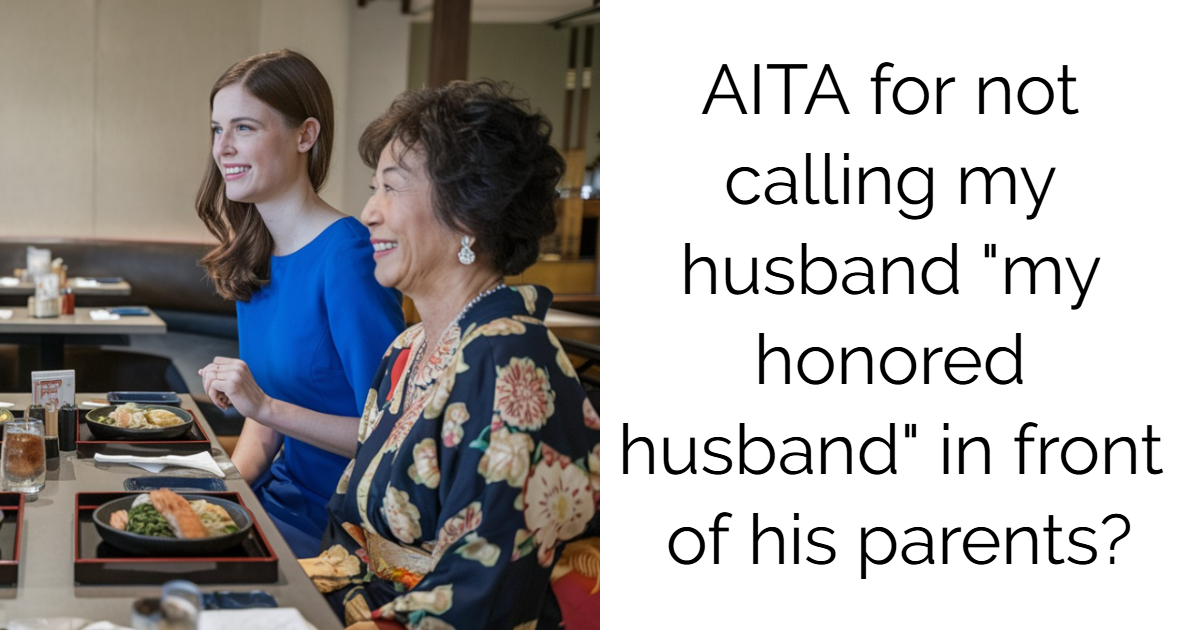
Every relationship has its quirks—pet names, inside jokes, and playful habits that make couples unique. But what happens when a private joke crosses into public territory, making one partner deeply uncomfortable? Worse yet, what if it happens in front of family?
That’s exactly what happened to this woman when her husband insisted she call him goshujin-sama—a phrase that translates to “honored husband” but is more commonly associated with maid cafés and outdated gender roles. While she tolerated it at home, she drew the line when he wanted her to use it in front of his Japanese parents. What followed was awkward tension, an escalating disagreement, and a husband sulking for over a week. Was she in the wrong, or is her husband acting entitled?
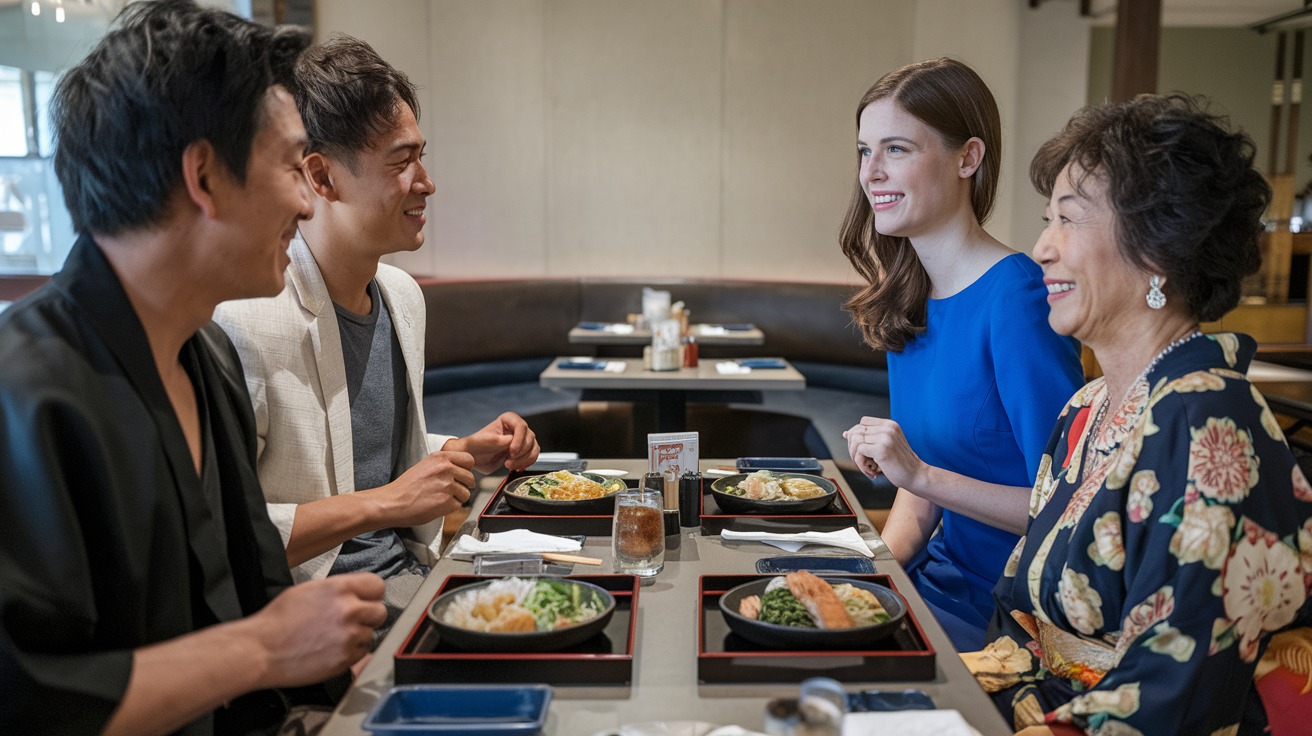
‘AITA for not calling my husband “my honored husband” in front of his parents?’

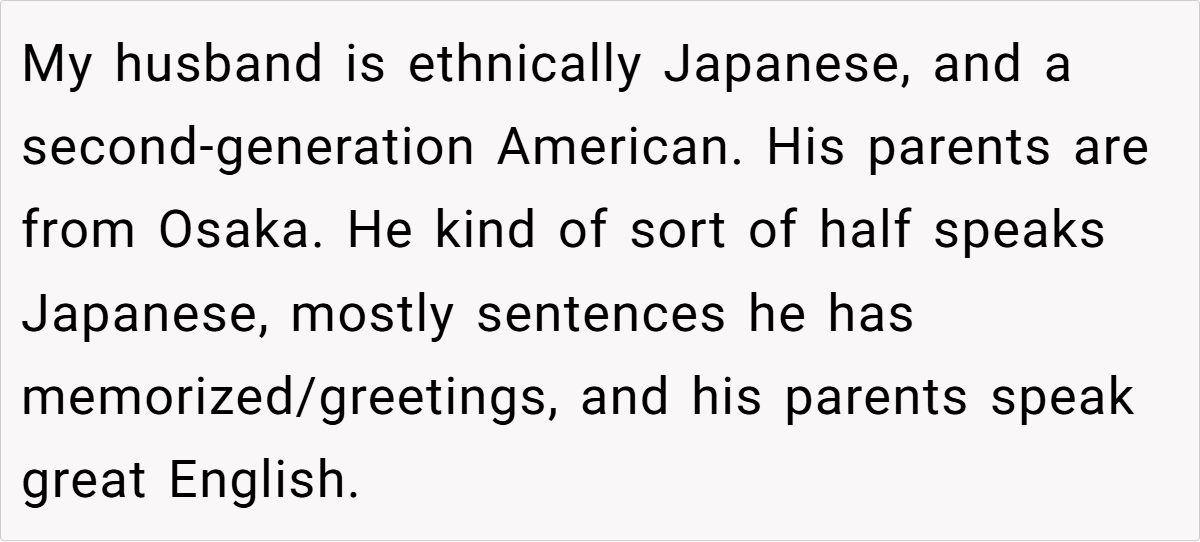
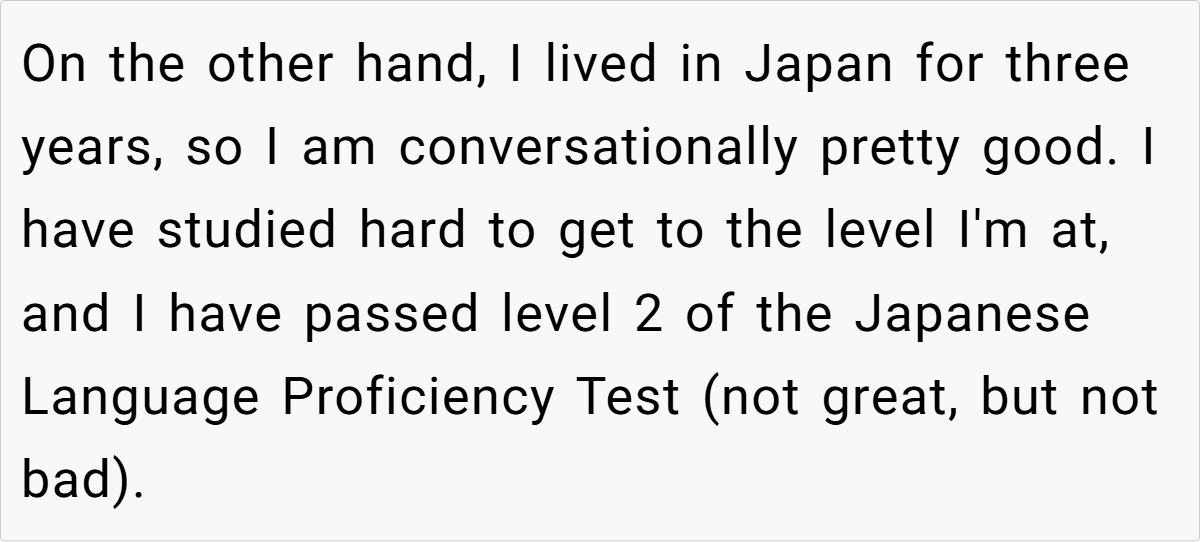
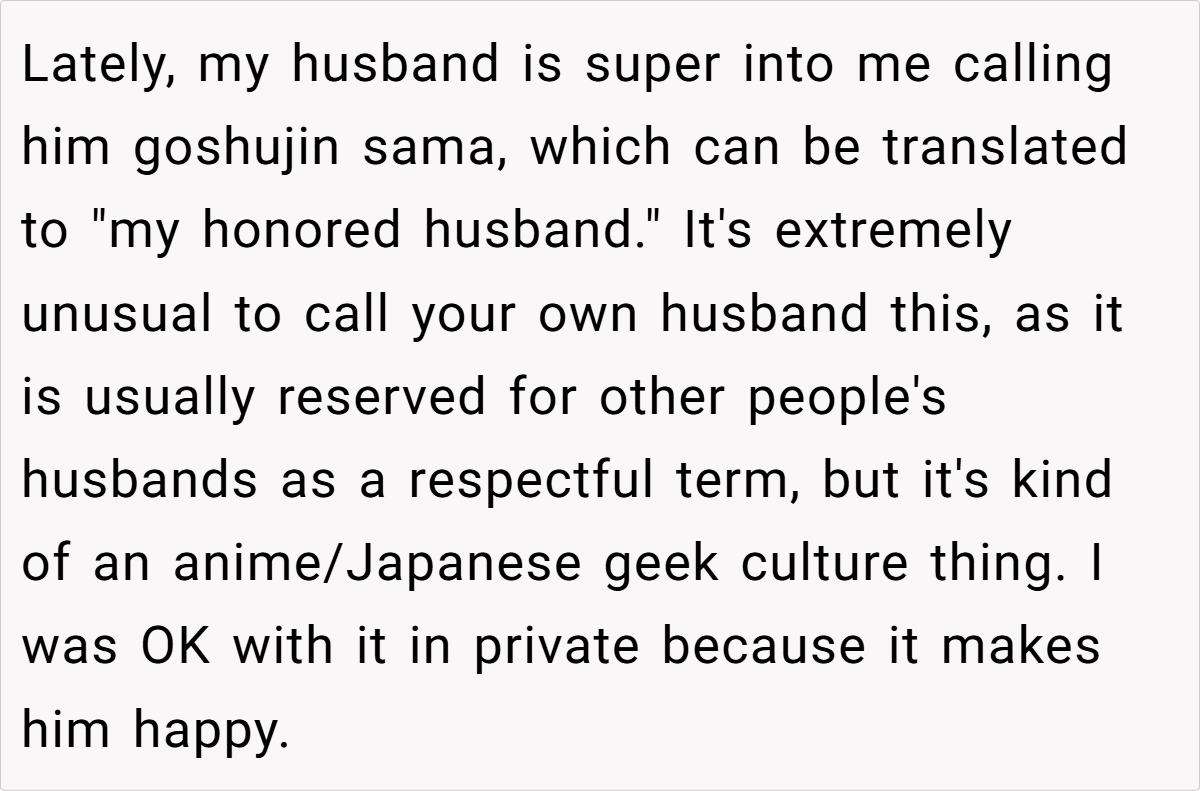
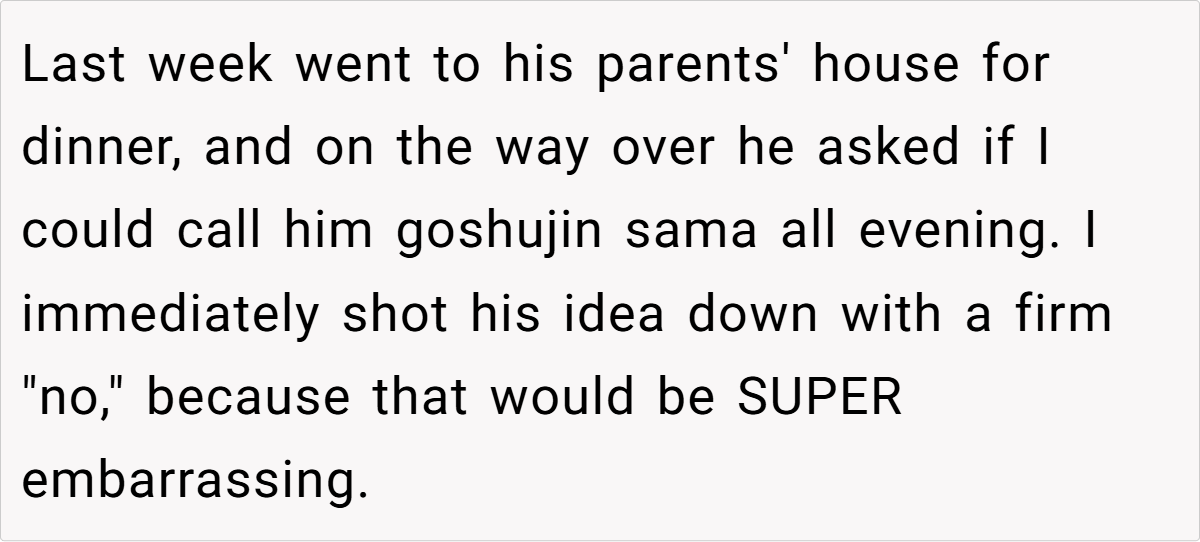
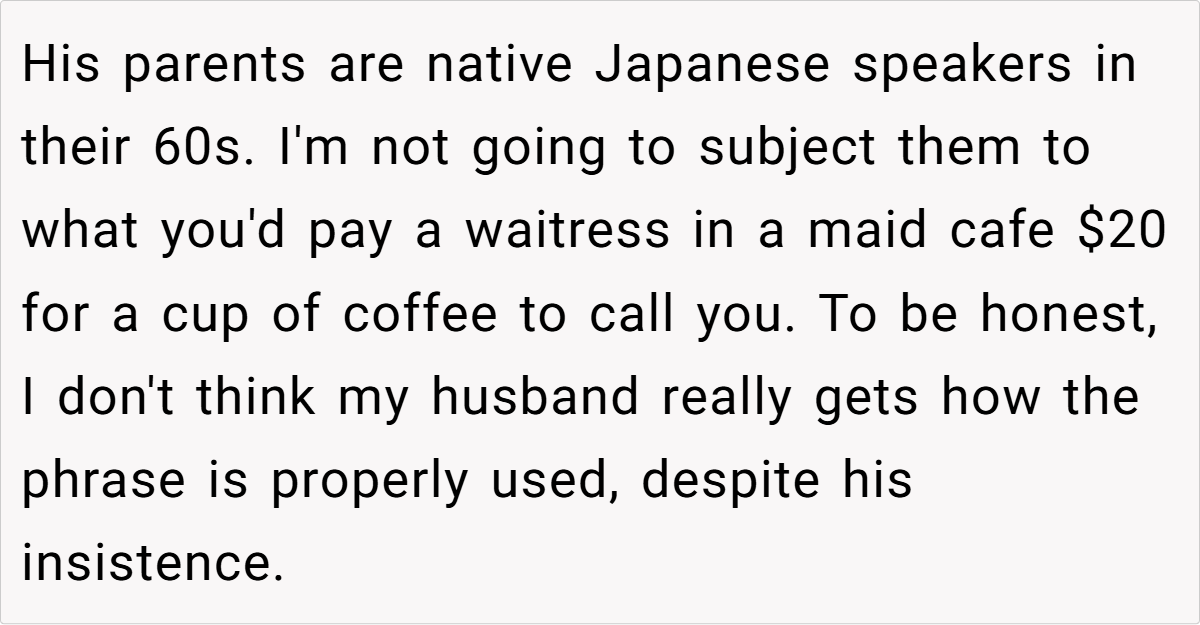
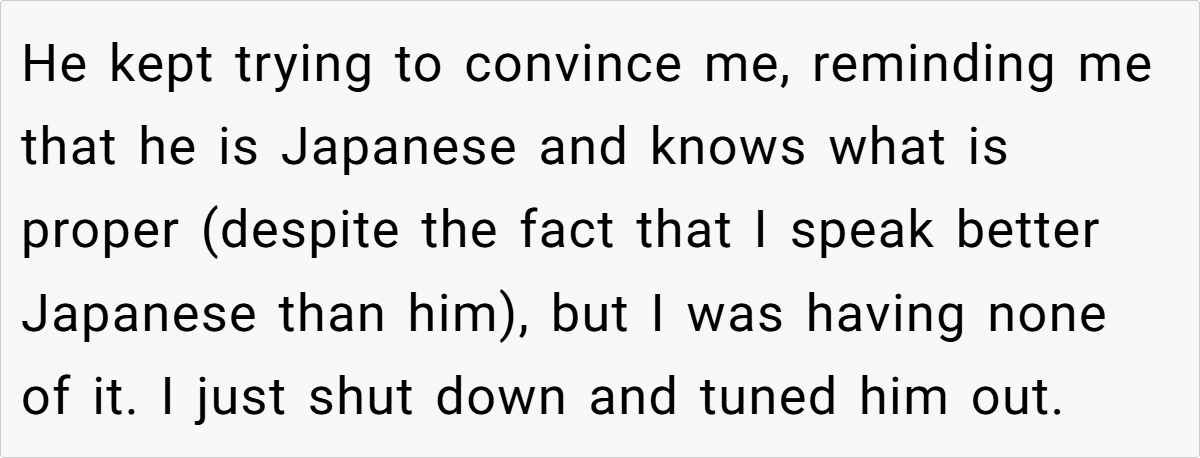
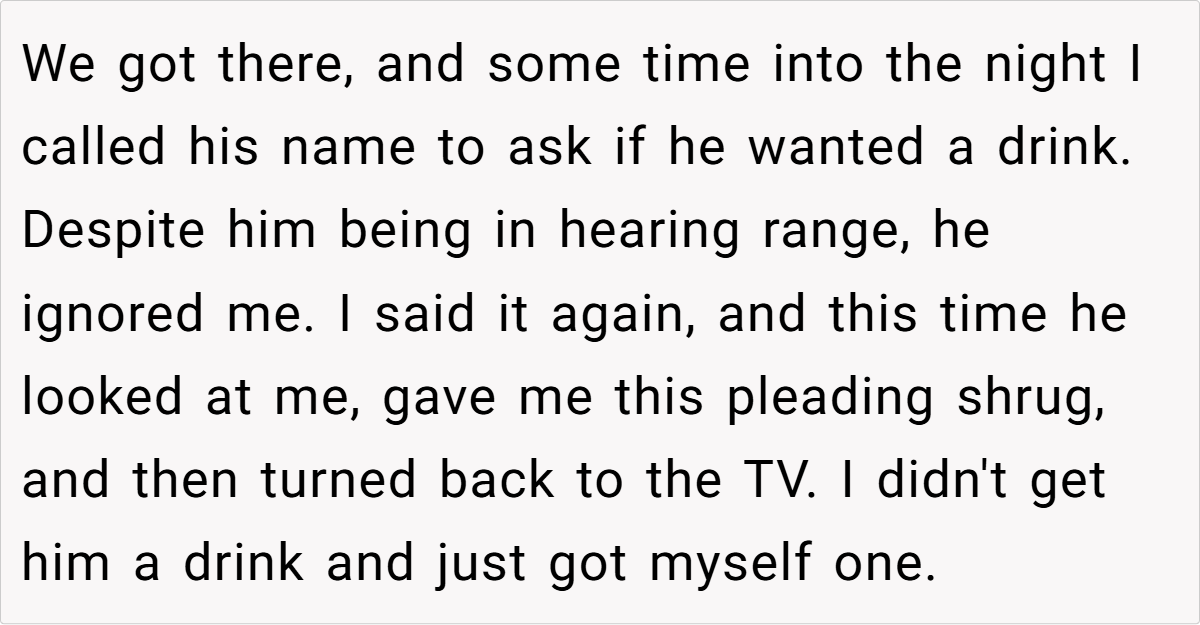
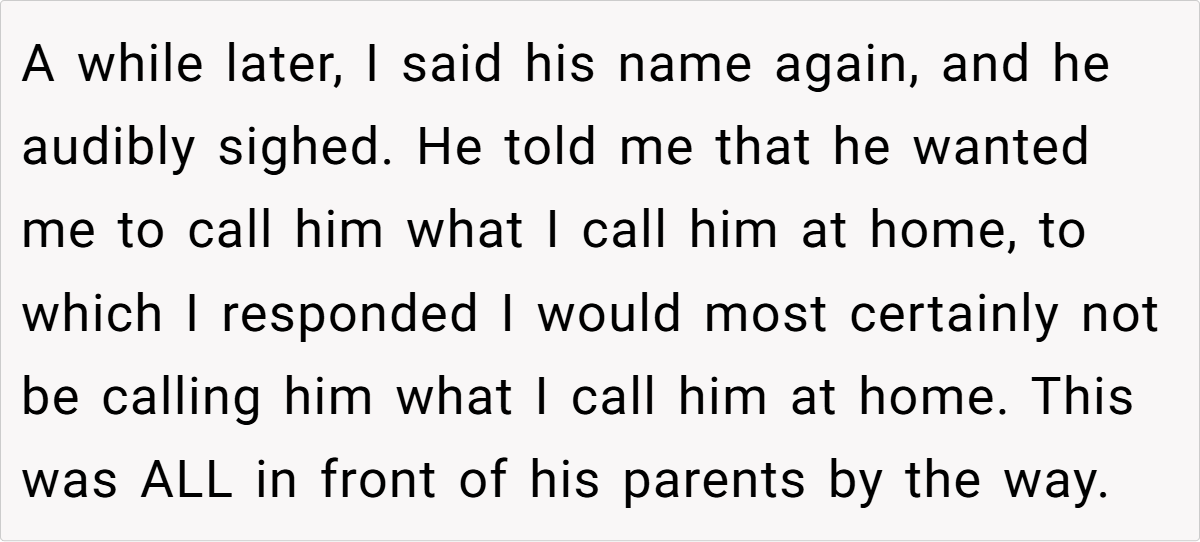
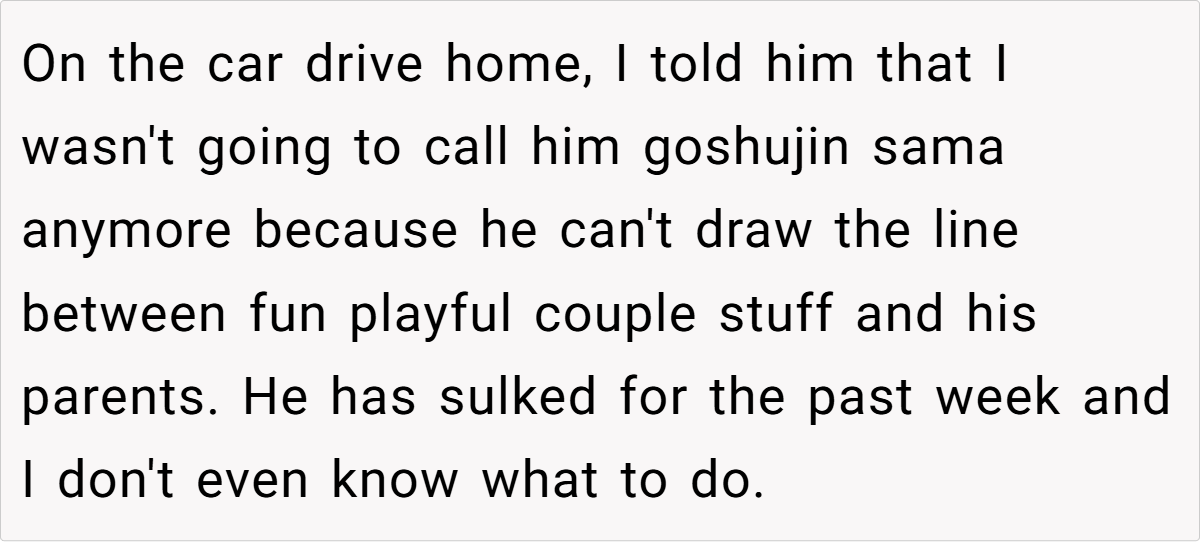
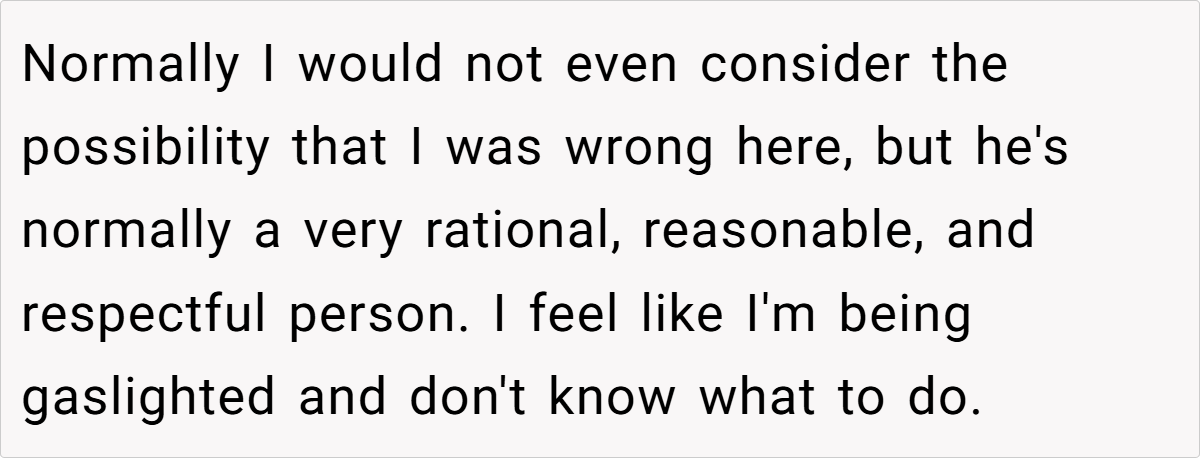
Expert Analysis:
What Does Goshujin-sama Actually Mean?
The phrase goshujin-sama isn’t something a modern Japanese wife would call her husband. Linguistically and culturally, it’s outdated. While it can mean “honored husband” in the most literal sense, it’s typically used in one of two ways:
- Referring to someone else’s husband in a formal setting.
- Used in a servile manner—most commonly in maid cafés, where servers refer to customers this way as part of the themed experience.
Dr. Naoko Takemaru, a professor specializing in Japanese language and culture, explains that “younger generations in Japan rarely use terms like shujin or goshujin because they imply a master-servant dynamic.” Instead, most couples use more neutral terms like otto (husband) or simply each other’s names.
If OP had called her husband goshujin-sama in front of his parents, they likely would have been confused, if not outright mortified.
Power Play or Misguided Ego?
What makes this situation particularly odd is that OP’s husband, despite being of Japanese descent, doesn’t fully understand the language’s nuances—yet he insists she use a phrase incorrectly. According to Dr. Harriet Lerner, a clinical psychologist specializing in relationships, “when someone insists on enforcing a dynamic that makes their partner uncomfortable, it’s often about control rather than tradition.”
His sulking afterward suggests that this wasn’t just a cultural misunderstanding. He wasn’t simply hoping to embrace his heritage—he wanted a display of submission and got upset when OP refused to provide it.
Would His Parents Have Even Approved?
Ironically, if his parents are like many traditional Japanese couples, they likely wouldn’t have seen this as a sign of respect at all. Japanese family dynamics tend to be reserved, and many older Japanese men wouldn’t expect their wives to use such formal language in casual conversation. Some might even find it more respectful for a couple to speak naturally rather than forcing exaggerated politeness.
Had OP gone along with it, it’s entirely possible that her in-laws would have been more uncomfortable than impressed.
Here’s what Redditors had to say about OP’s situation:
Most users agreed—this was not about culture, it was about control. Many pointed out that OP actually has a stronger grasp of Japanese than her husband, making his insistence even more ridiculous.


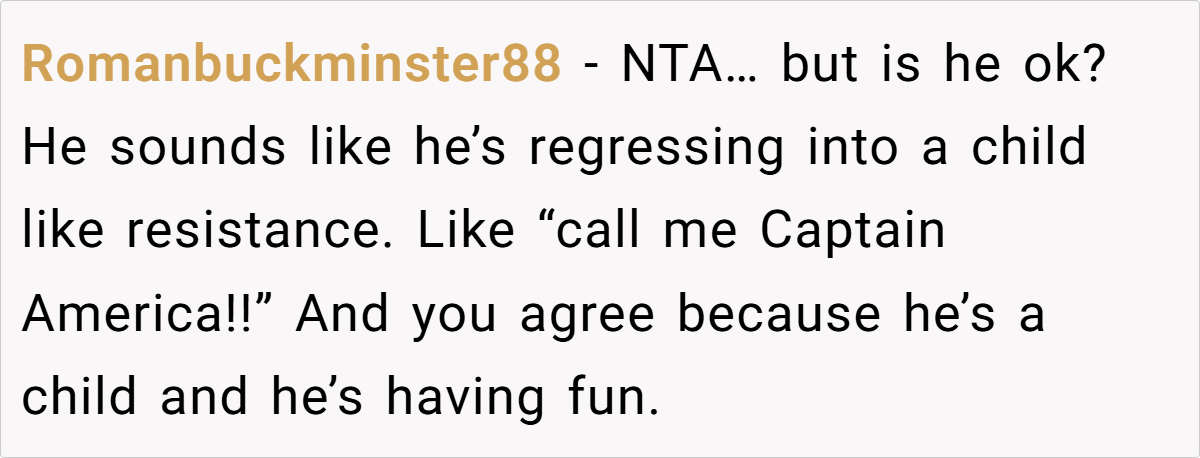






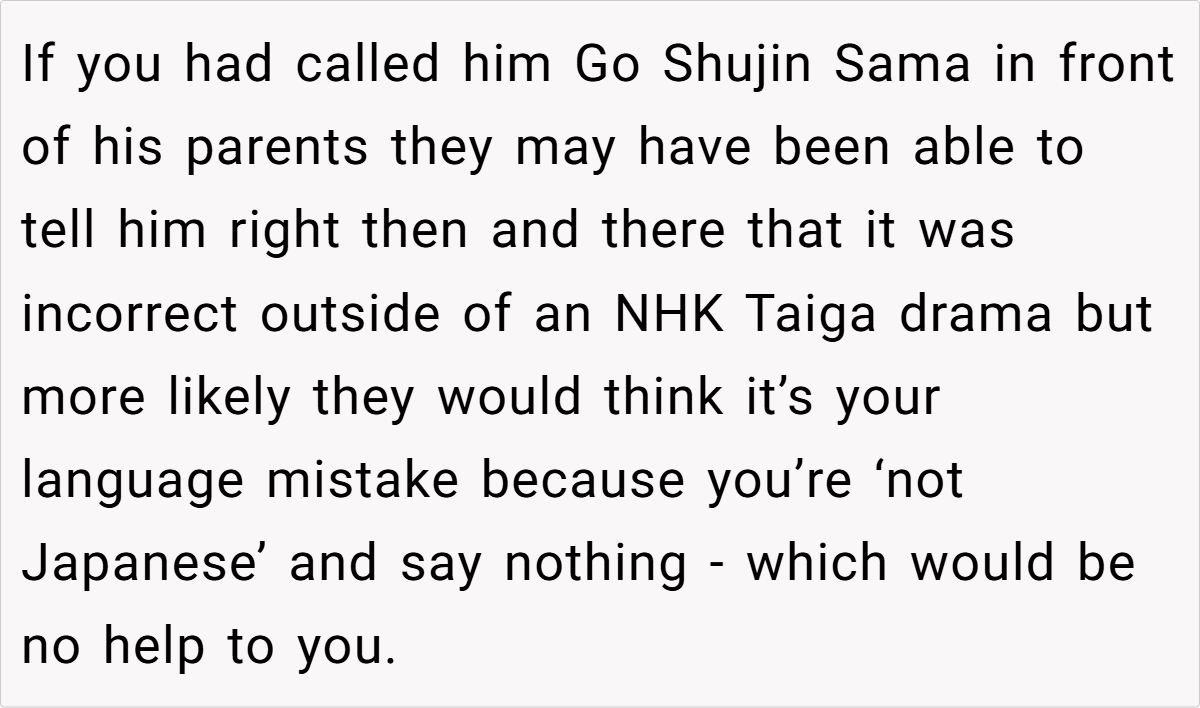

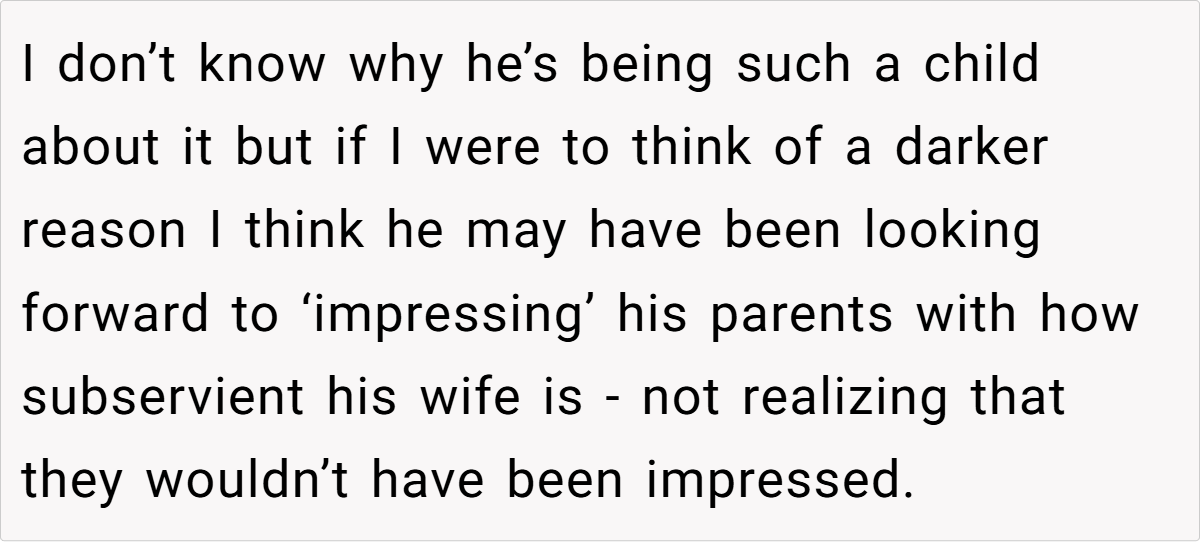

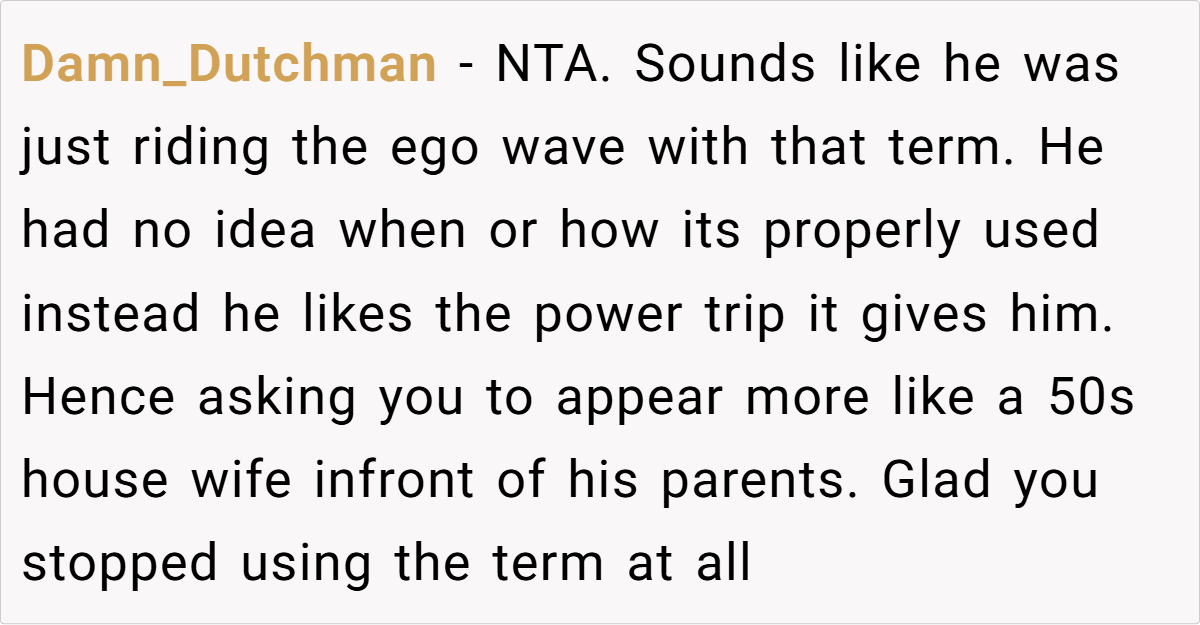
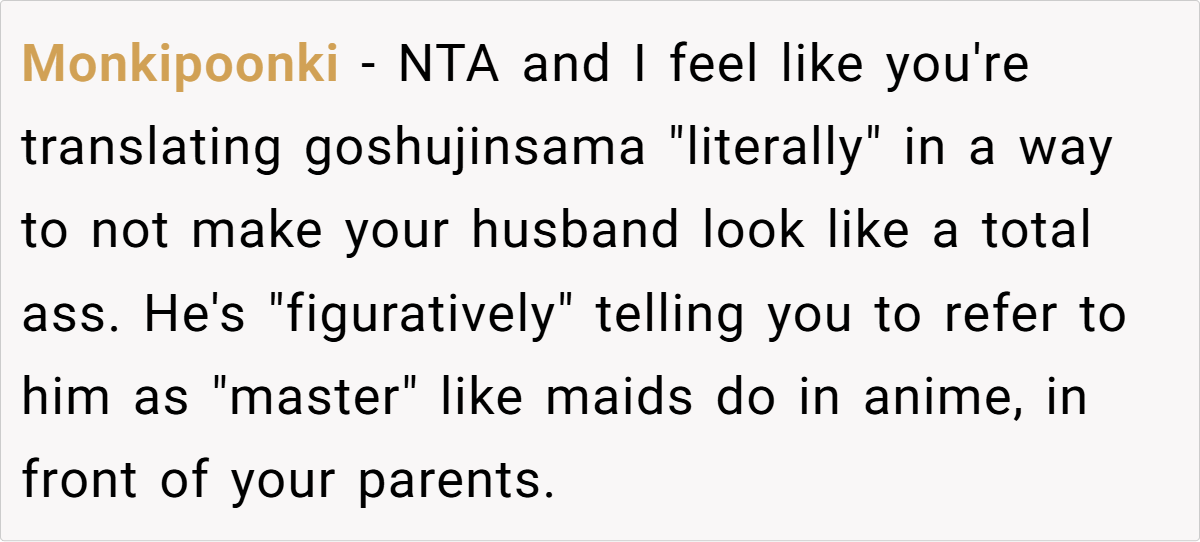

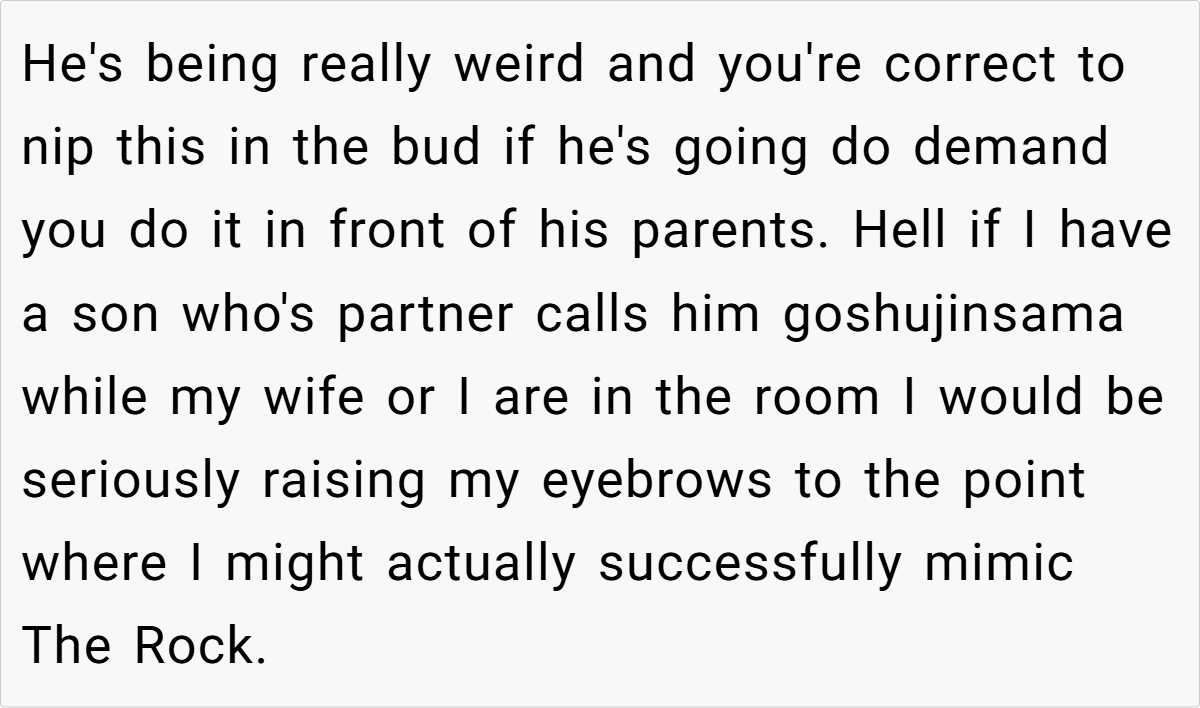
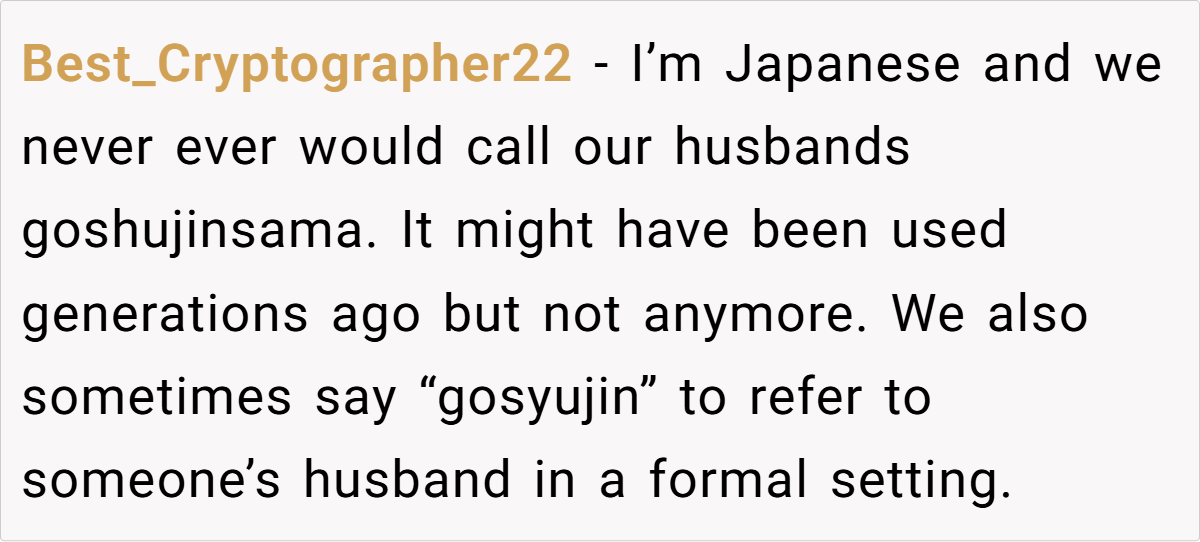
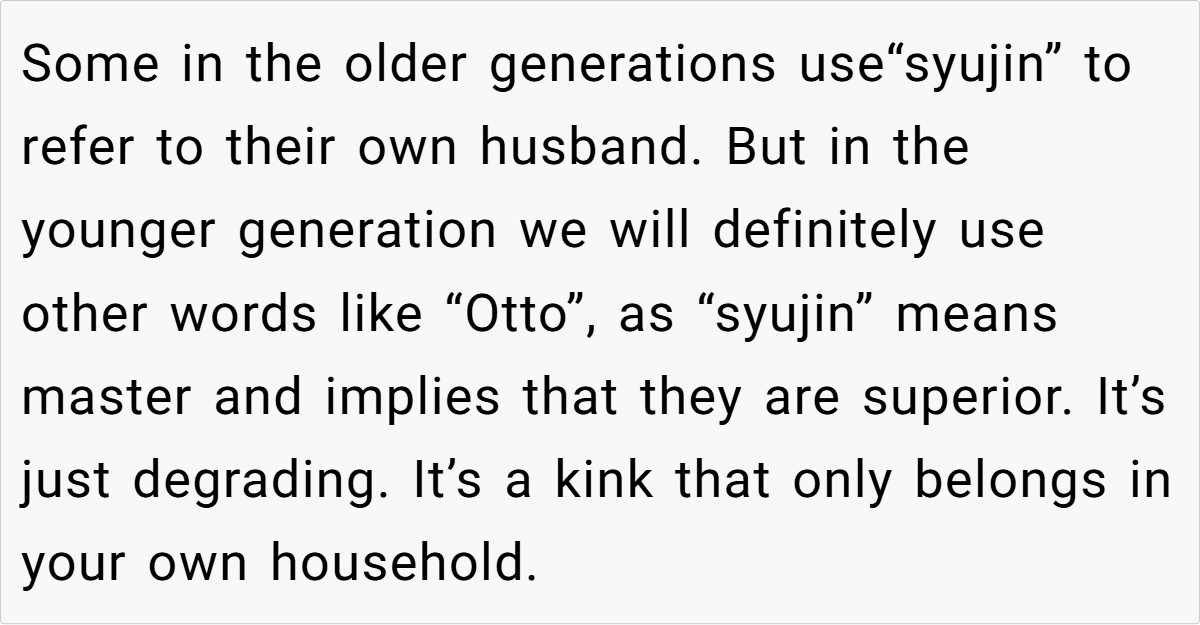

Cultural traditions should be embraced in a way that both partners feel comfortable with. If OP’s husband truly wanted to honor his heritage, he could have taken the time to understand Japanese language norms instead of demanding blind compliance. Respect in a relationship goes both ways—and insisting your wife call you “master” in front of your parents is not the flex he thinks it is.
What do you think? Was OP right to put her foot down, or should she have gone along with it? Let us know in the comments!

